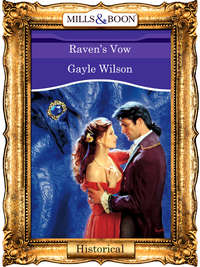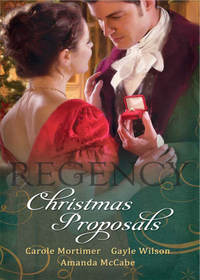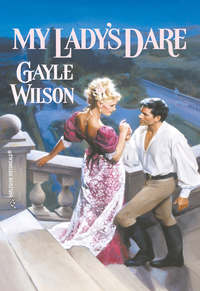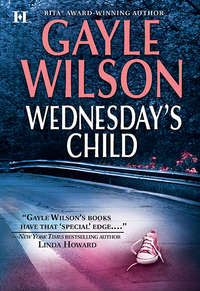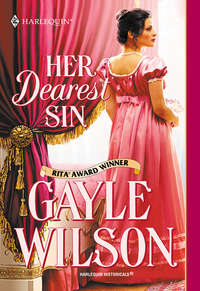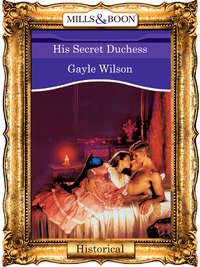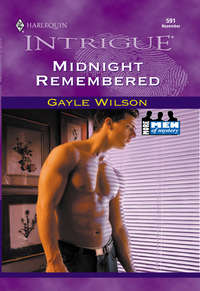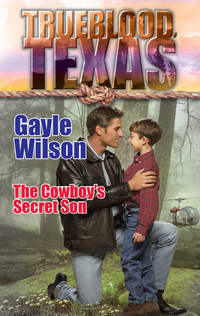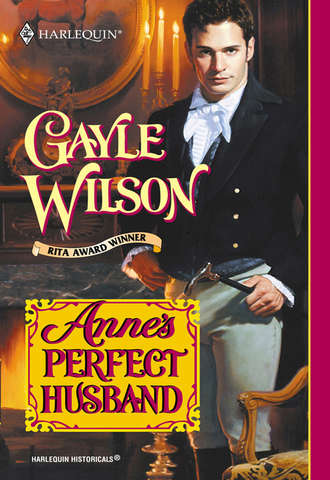
Полная версия
Anne's Perfect Husband
My existence of late. Slowly Anne was beginning to put all the small, yet telling clues together. Ian Sinclair had confessed to knowing her father on the Peninsula. And if he had returned to England while the British forces were still engaged in the war for control of Spain, there could be only one reason. A reason that explained both the lines of suffering in his face and perhaps even that nearly inaudible gasp of reaction when she had careened into him.
If there was anything more likely than a sobbing child to stir a response in Anne Darlington’s heart, it was a creature in pain. If it were not for Mrs. Kemp’s strictures, during Anne’s years here the school would have become a refuge for every homeless cur or injured squirrel in the district.
In spite of the headmistress’s injunctions, it had secretly sheltered a variety of carefully hidden invalids. Unknowingly, and without any conscious intent on his part, Ian Sinclair had issued an invitation that would have been almost impossible for Anne to refuse.
“Then I should hate to disappoint them,” she said bravely, “especially in this joyful season.”
Not exactly what he had bargained for, Ian thought, as he waited in Mrs. Kemp’s office for his ward to pack.
And Anne herself had willingly provided him with the perfect excuse not to take this farce any further. For some reason, however, perhaps nothing more than what he had indicated to her about his staff’s excitement at the prospect of a Christmas visitor, he had insisted that she come back to Sinclair Hall with him. He could only imagine their reaction when he returned, not with the child they all expected, but with a young woman in tow.
“…shall miss her dearly, Mr. Sinclair. Not that I would begrudge Anne her chance,” Mrs. Kemp said, his name bringing Ian’s wandering attention back to the subject at hand. “She is a most intelligent and deserving young woman, with the kindest heart I have ever known. I am delighted she will be able to take her proper place in society. I was so afraid that her father had not realized the importance of seeing that Anne has her Season.”
The words were chilling. Ian had left home at dawn this morning, expecting to bring a little girl back with him for the holidays. Suddenly, without warning, he had been propelled instead into the role of introducing a young woman into society. And it was a role for which he could think of no one less suitable.
After all, his contact with the ton had been severely limited by his military service and his prolonged convalescence. He had acquaintances within that elite circle, of course, but the implications of being called upon to provide a proper Season for George Darlington’s daughter went far beyond anything he had been thinking when he began this harebrained journey.
Sentimental idiot, Sebastian would have chided. And Dare would have been the first to warn that if he ended up in his grave as a result of driving halfway across the country in a snowstorm, then there would be no one around to see to Anne Darlington’s upbringing. Not, Ian admitted, that she needed much “seeing to.”
In actuality, she was already a woman grown. Most girls her age were married and producing the requisite heirs for their husbands. Just because this one had been hidden away behind the imposing doors of Fenton School for years didn’t mean that society wouldn’t consider her a woman.
“Her Season?” he repeated, his mind considering with near-horror what he knew about such things.
It was little enough. He had danced with his share of debutantes, of course. That was expected of every man about town, but he had never had the responsibility of bringing one out. And it seemed that Mrs. Kemp was now suggesting that he should.
“But of course,” Mrs. Kemp said. “Her mother’s family was quite respectable. Her grandfather was a viscount. And I believe the Darlington name to be equally honorable. Now, Anne’s father…” Mrs. Kemp paused delicately, one brow raised in question. “Was he a friend of yours, Mr. Sinclair?”
“An acquaintance,” Ian said carefully.
He had determined to keep his feelings about Darlington to himself. Airing them would serve no purpose but to rebound unfavorably on his daughter, who did not deserve that stain.
“Ah…” Mrs. Kemp said softly. “I did not think the two of you…” Again she paused, her eyes meeting Ian’s in perfect understanding. “He neglected Anne dreadfully. If it were not for the character of the girl herself, due to his financial neglect I should have been forced to send her away years ago.”
“I understood from the solicitors that her fees had been paid,” Ian said, feeling another surge of anger at Anne’s father.
“Her fees, but nothing else. That poor child has been dependent on our charity for the very clothes on her back.”
“I assure you, Mrs. Kemp, that what is owing to you will come first out of whatever estate Darlington has left. However, knowing his penchant for gambling and other…vices, I’m not sure of how much that consists. You will be repaid for your kindness, I assure you, even if it comes from my own pockets.”
“I don’t want the money, Mr. Sinclair. Especially not yours. I do, however, want Anne to have the chance at the happiness she more than deserves. She’s a good child, with a warm and generous spirit. I want someone to see to it that she is settled into a situation more appropriate to her birth than we can provide for her here. Will you promise me that you will do your very best to give her that chance?”
Ian had come north on a fool’s errand, drawn by sentiment and by the thought of giving a lonely child a festive Christmas. Now he was being asked to make a very different commitment. He might know little about providing a Season for a young woman, but he certainly knew the stated intent of such an endeavor.
Mrs. Kemp was asking him to find Anne Darlington a husband. As her guardian, Ian knew that, in reality, he could do no less for the girl and fulfill the obligations inherent in that post.
“You have my word,” he said softly.
“Such a chance, Anne. An unbelievable opportunity. You must promise me, my dear, that you will do everything you can to take advantage of it,” Mrs. Kemp said.
“I’m afraid I don’t understand. I mean…it’s only a Christmas visit,” Anne said doubtfully, smiling at her headmistress, who had been the closest thing to a mother she had ever known. Her own had died when Anne was four, shortly before she had been sent to Fenton School.
“Perhaps that was Mr. Sinclair’s intention at first, but I believe I have made him see his responsibilities to you run much deeper than that. He is, after all, your guardian. It’s up to him to see you suitably settled.”
Anne shook her head, still not sure what Mrs. Kemp was talking about. “Suitably settled?” she repeated. “I thought we had agreed I should have a teaching post here next term.”
“Oh, my dear! That can hardly compare with what is now offered you. I find it hard to believe that your father had the foresight to choose so well. He did, however, and now you must do your part.”
“My part in what?”
“To find your place in the world you are entitled to by your birth. We both know that you can sometimes be rather headstrong, my dear. I’m simply saying that you must let yourself be guided by Mr. Sinclair, who has, I assure you, only your best interests at heart.”
“But Mrs. Kemp, you know I am very happy here. Of course, I shall be delighted to visit Mr. Sinclair’s home for Christmas. That seems to be what he wishes me to do, but to believe that I shall become a permanent resident there or dependent on his charity, is, I should think, something neither of us would wish for. Whatever life you and he believe I am somehow entitled to, I assure you this is the life I truly desire.”
“You can’t evaluate what you’ve never known. And you are about to enter a world about which you know nothing. It may seem very frightening to you at first, but…” The words faltered, and Mrs. Kemp’s eyes seemed troubled. She put her hand on Anne’s cheek, cupping it as if she were one of the younger girls in need of comfort. “Oh, my dear,” she said, her voice passionate, “this is such an opportunity. I am simply urging you to make the best of it, whatever happens.”
Which didn’t sound comforting at all, Anne thought. She caught Mrs. Kemp’s hand and folded the fingers down into the palm. She laid her cheek against the back of it a moment before she brought it to her mouth and pressed her lips against the raised blue veins that were visible under the thin skin.
“I shall,” she said, smiling at the old woman. “I promise you I shall, Mrs. Kemp. Headstrong or not, I shall endeavor to do whatever Mr. Sinclair thinks is best. I promise you.”
It was not until she was actually in the coach, her portmanteau secured on the top and her feet and legs covered by a thick fur rug, that Anne realized what had happened. Mewed up in an institution run by rules and discipline, she had fantasized about adventure often enough, especially during her adolescence. Nothing about her previous existence had prepared her, however, to undertake one.
Yet here she was, riding inside a carriage with a man she had only just met, heading to a destination about which she knew nothing at all. Mrs. Kemp’s assurance that she had seen the solicitor’s papers and her obvious excitement over the prospects offered by Mr. Sinclair’s interest had been reassuring enough while Anne had been in the safe and familiar confines of the school.
Now that she was truly alone with her “guardian,” however, the Gothic tales of abduction she had read with such shivering delight seemed all too real. And not a little frightening.
“Comfortable?” Mr. Sinclair asked prosaically, smiling at her from the opposite seat. The question certainly dampened that particular flight of fantasy.
“Of course,” she said truthfully.
The coach was not only elegantly appointed, but very well-sprung. And despite the cold outside, the interior was every bit as cozy as her room on the third floor of Fenton School. Perhaps even more so. However, that was a room which she missed more and more with each mile they traversed.
“Good,” he said.
He had removed his hat and set it on the seat beside him. After they had traveled a short distance in silence, he leaned his head back against the seat and closed his eyes, tacitly giving Anne permission to study his features again in the less flattering light of day.
It was obvious she had been correct in her earlier surmise. Ian Sinclair had undoubtedly been invalided out of service and was not yet fully recovered. She could not help but notice his limp as they had walked to the coach.
Dark smudges lay like old bruises under the long lashes. His face was too thin, and beneath the natural darkness of his skin was a tinge of gray. His mouth was tight, as if set against a pain she could almost feel.
And yet, given all those, it was a face that was undeniably appealing. The nose was as finely shaped as his mouth, the brow high and noble, and the jaw strong. Whatever his age, and Anne was no nearer guessing that than she had been from the first, Ian Sinclair was a very handsome man. And he was her guardian.
She wondered if, at nineteen, such a guardianship were even legal. She had little knowledge of the law, of course, so she must trust that her father’s solicitor and Mrs. Kemp were more knowledgeable about such matters than she. Neither seemed to have expressed any reservations about the arrangement.
She turned her head, looking out at the passing landscape. The snow that had been threatening for days had finally begun to fall in earnest, and she wondered again that Mr. Sinclair had made this journey, given the uncertain state of his health.
She could not imagine what had prompted him to embark on this foolhardy venture for the sake of a girl he had never met. Duty, she supposed. And a sense of obligation to her father, who had been his friend.
He said they had been comrades in arms. She would have to ask him about her father’s service. Perhaps Mr. Sinclair could help her to finally understand the man who had fathered and then abandoned her. At the very least, he would be able to tell her more about her father than she knew now. She could not even remember what he looked like.
She knew she took after her mother. She couldn’t remember who had first told her that, but she had known it all her life. As she had grown into adulthood, the face in her mirror did indeed grow to match the one in the gold locket she still wore about her neck. It was the only thing she had of her mother’s.
She touched it now, wrapping gloved fingers around its small, familiar shape. At least something would be familiar when they reached their destination, she thought, her eyes deliberately focused on the landscape they crossed rather than on the handsome, pain-etched face of Ian Sinclair.
Chapter Two
“I’m afraid it’s no use, sir,” the coachman said. His voice sounded hollow and distant as it echoed from beneath the carriage. “It’s the axle. Damaged beyond our abilities to make repairs here, I can tell you. Someone must ride and get help.”
Ian’s lips tightened against the curses to which he longed to give utterance. He had learned long ago that cursing fate was an exercise in futility. And that painful lesson had been reiterated more times than he wished to remember during the past fourteen months.
“All right then,” he agreed. “I’m afraid that expedition will have to be up to the two of you,” Ian said, including the groom in his instructions. “Unharness the leaders and see if there’s a house nearby which looks decent enough to shelter Miss Darlington. If not, then ride on and bring back a conveyance of some kind from the nearest posting inn.”
“On this stretch of road the inns will probably be our best bet, sir,” the coachman said. He had crawled out from beneath the carriage and was beating muddy snow off his knees with his gloved hands. “I can’t remember passing any dwelling likely to offer a proper shelter for the young lady.”
“If the storm hits, I suppose any dwelling will be proper. Better than the coach at least.”
“I can ride,” Anne said.
Ian looked up to find her standing in the open door of the carriage, her breath creating a small white fog around her face. He thought about warning her that she would do better to stay inside and keep the cold out. No matter how well-constructed the vehicle might be, come nightfall it would be vastly uncomfortable, even with the rugs.
There were four horses. Ian briefly debated whether to send Anne off with the coachman. Given the rigors of the day, he was frustratingly sure of his own inability to stay astride for any distance at all. The cold and damp had already taken its toll, although he was loath to make that admission, even to himself.
Riding was another of the pleasures that had been taken from him when he had been wounded. And of course, it was one of the things he missed the most.
“I think we should do better to stay with the coach,” he said aloud, smiling at her as if this were simply a minor inconvenience. “It won’t take long for help to arrive, and the interior of the carriage offers protection from the cold which being on horseback won’t afford.”
“I assure you, Mr. Sinclair, the ride won’t make me ill. I believe I am made of sterner stuff than that,” Anne said, returning his smile.
Obviously she was, Ian thought. She hadn’t dissolved into a fit of vapors or made any complaint about the delay. For that he was eternally grateful. He had quite enough to deal with right now without adding hysteria to the mix. She would probably handle the ride with aplomb as well, despite the temperature.
That was not the reason he had opted to keep her with the coach. He was the problem. Not Anne.
He knew he could trust her to John Coachman’s care, if he sent her off on the third horse. However, if there were no suitable houses on the road and they had to seek shelter at a posting inn, Ian also knew he would be endangering her reputation and possibly even her physical safety. He couldn’t ask or expect his servants to guarantee either of those. As Anne’s guardian, that was his duty. And the demands of duty were something with which Ian Sinclair was very familiar.
“I think we’ll do better to wait here. And better not to allow the cold into the carriage,” he added.
Her eyes met his, widened a little, as quick color stole into her cheeks. She had interpreted that last as a rebuke.
Perhaps it had been, Ian admitted. Or maybe it had simply been the result of the deep ache in his leg that grew more painful each minute he stood in the middle of this infuriatingly empty road trying to decide what the hell to do with his ward. A young woman who had been thrust into his life by the very man—
“Of course,” Anne said.
She stepped back inside, closing the carriage door after her. Closing it hard enough that the entire vehicle shook. Ian heard and ignored the groom’s quickly muffled snort of laughter. Reluctantly, his own lips aligned themselves into a less grim aspect, and he met the coachman’s sympathetic eyes with resignation in his.
“I can’t manage the ride,” he confessed, finding the admission difficult to voice. “And I think that since I am Miss Darlington’s guardian, she should stay here with me. But it’s going to get damned cold when darkness falls, John, and that’s going to happen soon,” he judged, looking up through the snow at the lowering clouds. “Be as quick as you can, man.”
He pulled a small sack of coins out of the pocket of his cloak and opening it, spilled the contents into the palm of his leather glove. “If this is not enough, promise them the moon, but get someone out here before nightfall.”
“We won’t fail you, Mr. Sinclair,” the groom said.
“I’m counting on that,” Ian said, slapping him on the shoulder and smiling.
Major Sinclair had known very well how to get the best from his troops. This situation was little different. Lives depended on these two men accomplishing the task they’d been given as quickly as possible.
“We’ll get someone, sir,” John said. “You stay inside the coach, Mr. Sinclair, and you’ll both be right as rain. We’ll be back before you’ll even know we’re gone. Surely there’ll be a house within a couple of miles. And if not, there’ll a be posting inn only a few farther.”
Ian nodded, wishing he were half as confident as the coachman sounded. Of course, being able to take action always made one more positive about the outcome of any venture. Ian had an intimate if enforced acquaintance with prolonged inaction, however, and he would have to deal with it, just as he had for more than a year.
“Off with you then,” he said. “And good luck.”
He turned and limped back to the closed door of the coach, his lips lifting, despite their predicament, at the remembrance of the bang with which it had been shut. He resisted the urge to knock, opening the door instead and using his cane and the strength of his right arm to pull himself up the steps.
Thankfully, instead of watching that awkward maneuver, Anne Darlington was rather patently engaged in looking out the window on the opposite side of the carriage. Since there was nothing there but snow-covered trees and shrubs, their shapes darkened by the early-descending twilight, her concentration on the scenery likely had less to do with its attractions than with her anger or embarrassment over his supposed rebuke.
“They’re off,” he said, settling himself with gratitude on the seat.
He stretched out his leg, stifling the small groan the resulting relief evoked. Despite the fact that Anne had opened the carriage door for those few minutes, the interior was still far warmer than the frigid air outside. And they were sheltered from the wind.
He turned his head, studying her profile. She still hadn’t looked at him, and right now he felt as if her displeasure were a blessing. It had given him a few seconds to recover from the cold and the climb up into the carriage, as well as a chance to compose his features.
Just as he thought that, Anne turned, her eyes examining his face. As he watched, they seemed to change, the spark of temper fading to be replaced by an expression of sympathy. He found that he much preferred her anger to her pity.
“I’m sorry I opened the door,” she said. “I didn’t think that we might be forced to spend some hours in the coach.”
“Hopefully, it won’t come to that. There will surely be some house nearby that can offer us shelter.”
“And if there isn’t?”
“They’ll bring a carriage from the nearest inn. It shouldn’t take long. I think we shall manage to keep warm enough in the meantime,” he said.
“And you? Are you going to be…”
The soft words faded. Perhaps his frustration was visible in his eyes. Or perhaps she read there his reluctance to discuss his health. In any case, she held his gaze only a second or two, and then she turned hers once more to the window, pretending to contemplate the rapidly darkening woods.
After a moment spent regretting his surge of anger and her resulting withdrawal, he turned his attention to the window on the other side. And twilight faded into night, as Ian Sinclair awaited the rescue he had confidently promised his ward.
The temperature had fallen with each passing minute, and Ian’s anxiety had risen proportionally. When he finally heard the muffled sound of horses’ hooves approaching on the snow-covered roadway, his relief was almost physical.
At least until he realized that’s all he had heard. No carriage. No sounds at all that might be interpreted as emanating from a coach or even a wagon. In the darkness, he heard Anne, who had been dozing off and on, begin to stir. Ian reached out, touching the rug that rested over her knees.
“Shh,” he cautioned, his ears straining to follow the noises outside, which were coming nearer and nearer.
Ian couldn’t have said what had first kindled his uneasiness. Perhaps because there had been no hail or salutation from John or the groom as they approached. Whatever the reasons for his apprehension, as the hoof-beats neared, it had gradually increased. Ian fumbled in the side pocket of the carriage, which held the ever-present traveler’s pistol.
Although highwaymen abounded on English highways, or at least tales of them did, Ian doubted this weapon had ever before been removed from its pouch. He could only hope that John had been diligent in making sure it was loaded and ready.
Despite that worry, Ian felt a swell of confidence as his fingers closed around the shape of the pistol. He hurriedly unwrapped it from the oilskin in which it was kept, the weight of it reassuringly the same as the one he had carried on the Peninsula. And he had always been accounted a good shot.
There had still been no shout of greeting, although the horses were now very close. And no talking at all, Ian realized. He eased nearer the door, turning his body to face it and laying the pistol in his lap, his right hand resting over it, although the darkness would certainly conceal that it was there.
With his left hand, he reached out and found Anne’s arm. Without speaking, he applied pressure, trying to signal her to move over behind him on the seat he occupied. If he could position her there, with his body between whoever was outside and hers, he could offer her even more protection than the pistol alone would afford. After all, he would have only one shot.
His every sense was trained on what was going on beyond that closed door. With the fall of night, Ian had pulled the shades down over the windows, hoping to keep out some of the pervasive chill. That was a move he now regretted.
There was a soft jingle of harness, quickly muted, probably by a gloved hand. Ian pulled Anne’s arm again, more urgently this time, and finally she understood, slipping silently onto his seat and pressing close behind him. He took a breath in relief.
As he did, the door he was facing was jerked open and a torch was thrust into the carriage. It came so close to his face that Ian felt a searing heat, and the sudden flare of light blinded him. He recoiled automatically, to escape both its brightness and the flame, which seemed directed at his head.


